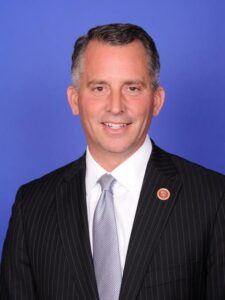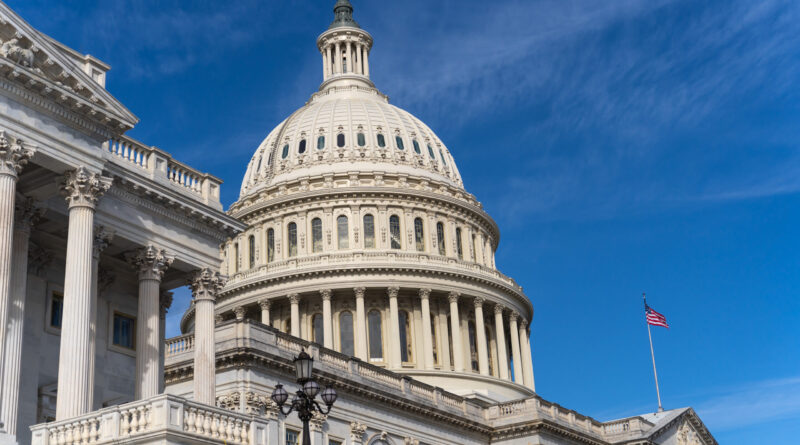The government has been shutdown for almost a week. How and when might it reopen?
Six days ago the federal government shutdown amid a battle over the continuity of Affordable Care Act (ACA) tax subsidies after the Senate rejected a stopgap funding measure that passed the House of Representatives.
Republicans control both legislative chambers and the White House. But the Continuing Resolution, or CR, needed at least 60 votes to pass due to Senate filibuster rules.
The GOP occupies 53 seats and the Democrats occupy 47 seats, so bipartisan support is required for the measure to advance.
A few Democrats did vote with the GOP to keep the government open. But most withheld their votes because the CR did not renew the subsidies, which are set to expire at the end of the year. The subsidies help many lower income Americans pay for health insurance.
Since the government closed, the Senate has taken several revotes on the CR, all of which have failed. More votes are scheduled for this evening, and they too are expected to fail.
The House is out of session for the rest of the week and is not expected to return until the Senate passes the CR.
Behind the scenes negotiations appear to have stalled. In public, both Republicans and Democrats are blaming each other for the shutdown.
A recent poll showed that Americans blame both parties about equally for the shutdown.
Emergency measures are in place to ensure pay for military personnel and funding for crucial safety net programs. But the longer the shutdown lasts, the more those funds are at risk of becoming insolvent.
President Donald Trump has threatened to use the shutdown to fire thousands of federal employees.
Many civil servants are poised to lose their paychecks if the shutdown continues beyond this week. However, those individuals are entitled to full back pay once the government reopens.
The U.S. Constitution guarantees that members of Congress get paid even in the event of a shutdown.
So, how does this mess get resolved? When might the government reopen? Which party will take the heat for the shutdown?
Baltimore Post-Examiner spoke with several former members of Congress on Monday to get their perspectives.

“The impasse is likely to last another three weeks or more,” said former Rep. Rick Lazio, a New York Republican, who served from 1993-01. “The final outcome may well include a one-year extension of the ACA credits or a broader but still limited tax bill that includes ACA credits and some Republican priorities to bring conservative members on board. I do not see a scenario where Republicans unravel any of the OBBB (One Big Beautiful Bill), with the possible exception of adding money to a new fund to bridge some of the hospital reductions.”
Former Rep. David Jolly, a Florida Republican, who served from 2014-17, largely agreed.
“Democrats have nothing to lose and Trump sees compromise as weakness. So this could go on a long time. It will take a broader impact on American lives before either side will reconsider their positions. Because shutdowns disproportionately impact a relatively small portion of the country, there is little political consequence right now for the impasse.”
Jolly said he expects Republicans will eventually agree to some sort of compromise on the subsidies.

“I do think Trump and Republicans will see the benefit of moving toward relief on ACA premium increases — but Trump is going to have to get there himself. He won’t be pushed by Democrats. Thune will then lead the package on the Hill. I don’t expect Trump and Republicans to move at all on the healthcare provisions in the Big Beautiful Bill. I suspect any deal will be limited to extending the ACA tax credits for a short period — on the Hill that likely means just past the midterms!”
Former Rep. Jason Altmire, a Pennsylvania Democrat, who served from 2007-13, also said he expects an agreement on the subsidies, but noted that the GOP is unlikely to grant that concession as precondition to reopening the government.

“The Republicans realize they have a problem with the expiration of the Obamacare subsidies. That issue probably gets fixed one way or the other, but Republicans don’t want to give Democrats that win as part of the shutdown as it would look like they caved to Democrats’ demands. This would embolden Dems in the future budget and shutdown battles. Hard to see how this gets resolved any other way, though.”
Former Rep. Steve Israel, a New York Democrat, who served from 2001-17, echoed similar sentiments.
State assistance for Maryland’s federal employees
In Maryland, which is home to an estimated 269,000 federal employees-Gov. Wes Moore, a Democrat-announced Monday the launch of a state loan program to help essential federal employees who are going without pay during the shutdown.
“At a time when the federal government is stepping back from its most basic obligations, Maryland is stepping up to protect our people,” Moore said in a statement. “The emergency support we announce today will keep public servants afloat as we enter a second week of this shutdown. But no state can continue to fill the massive gap created by Washington. The president must come to the negotiating table in good faith and close a deal to open the government.”
The program will be administered by the Maryland Department of Labor.
It will provide a single interest-free $700 payment for basic necessities, such as food and housing.
The money must be repaid within 45 days after the government reopens.
Applications for loans can be filed starting today, but payments will only be issued if the government is still shuttered on Oct. 15.
If such is the case, payments will go out starting the following day.
Payments will be mailed by the Treasurer’s Office.

Bryan is the managing editor of Baltimore Post-Examiner.
He is an award-winning political journalist who has extensive experience covering Congress and Maryland state government. His work includes coverage of the first election of President Donald Trump, the confirmation hearings of Supreme Court Justice Brett Kavanaugh and attorneys general William Barr and Jeff Sessions, the Maryland General Assembly, Gov. Larry Hogan, and the COVID-19 pandemic.
Bryan has broken stories involving athletic and sexual assault scandals with the Baltimore Post-Examiner.
His original UMBC investigation gained international attention, was featured in People Magazine and he was interviewed by ABC’s “Good Morning America” and local radio stations. Bryan broke subsequent stories documenting UMBC’s omission of a sexual assault on their daily crime log and a federal investigation related to the university’s handling of an alleged sexual assault.

